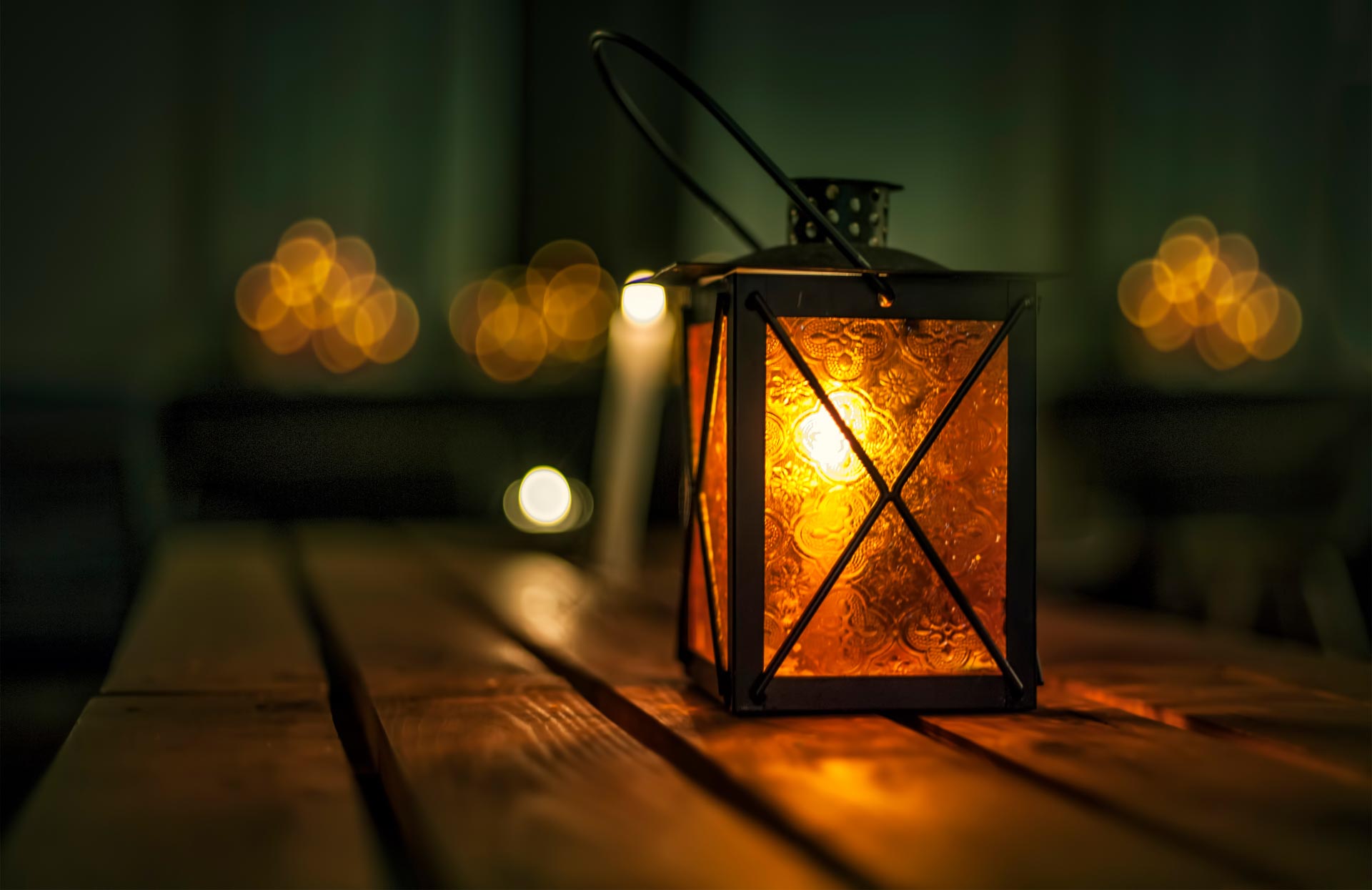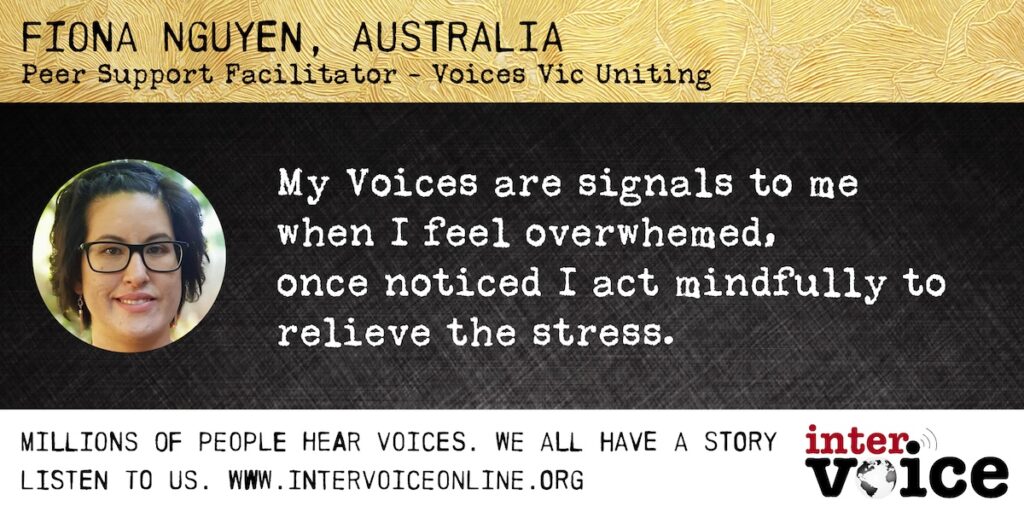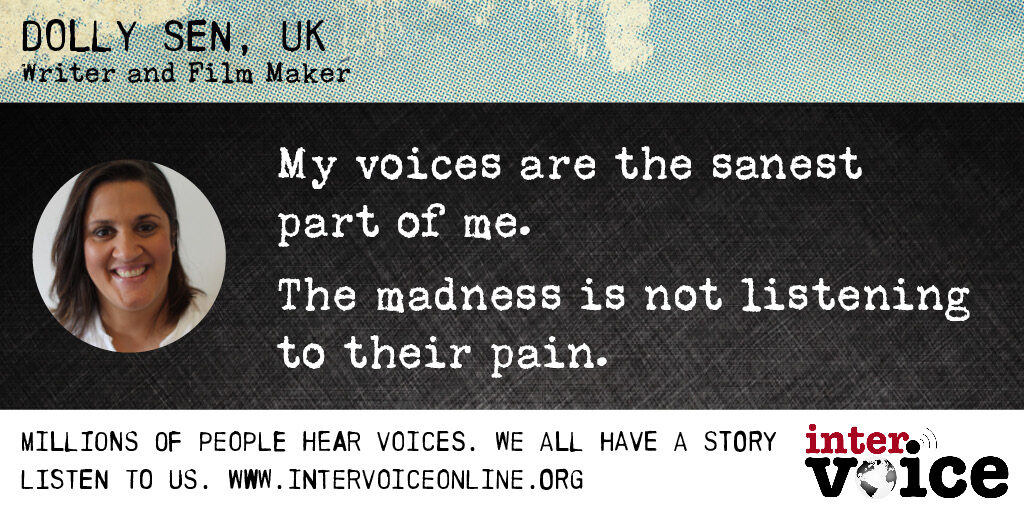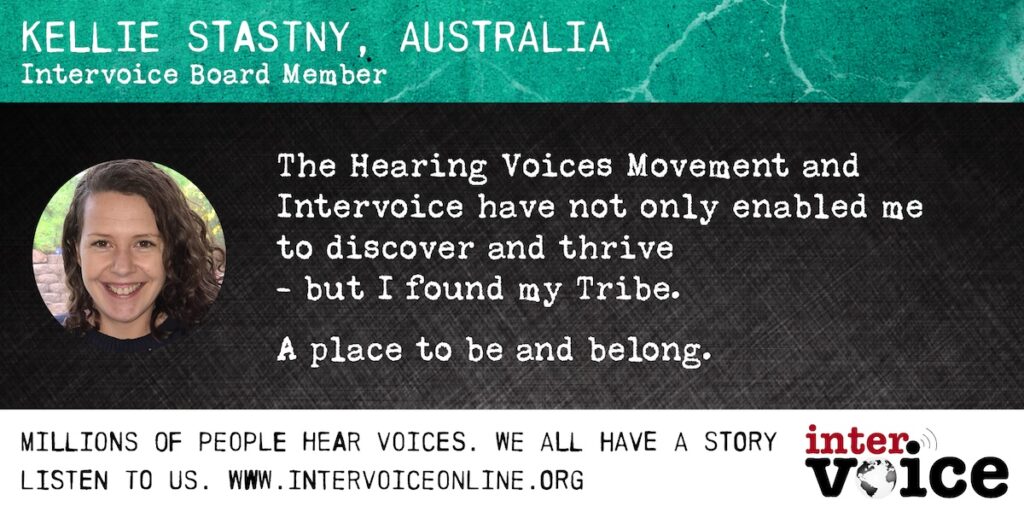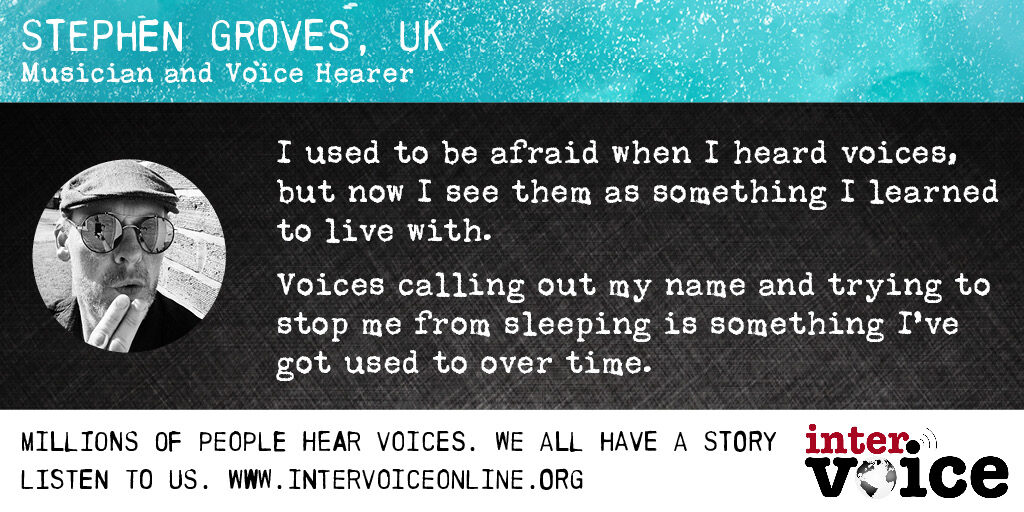Introduction
To hear a voice that has no apparent physical cause is usually regarded by psychiatry as an auditory hallucination, a sign of a mental illness. It is most often regarded as an important symptom of schizophrenia (although voices can also occur in manic depressive and disssociative disorders) and no doubt many of you reading this, will be doing so, because of your concerns about these “illnesses”, perhaps you have been diagnosed as having schizophrenia yourself or know someone who has?
It is possible that the hearing of voices (as we prefer to call them or auditory hallucinations as psychiatrists call them) is an important part of the distress that the illness causes you. It is also possible that other readers hear voices and are troubled by them, but so far have not sought medical assistance and may not have done so because the perception of hearing voices is very negative.
A third group of readers might also hear voices and wonder what all the fuss is about, they might be quite comfortable with the experience and don’t think it is a problem at all, although understandably, are deterred from talking to other people about it because of what they might think of them if they did say anything. Unsurprisingly, then, hearing voices is not generally talked about because it is thought of as a socially stigmatising and unwanted experience.
Psychiatry and voices
Because of prevailing attitudes psychiatry and within society as a whole, it is important to point out, that there are many people who hear voices who can cope with their voices and regard them as a positive part of their lives. Neither is it the case that voices have always been regarded as a negative experience, throughout history and even today there are people who hear voices who find their voices inspirational and comforting.
These are facts, that on the face of it are hard to square with the negative way that the experience is regarded by psychiatry. This is in no way an attempt to deny or belittle the very disturbing effect voices can have, both for the person who hears voices, and their family and friends. The voices can be hostile, controlling and seek to undermine the voice hearer’s own self-esteem. Many people feel overwhelmed by the consequences of this experience and end up seeking seek medical assistance. It often seems as if there is little that the people themselves and the people around them can do to regain control of their lives and that was certainly my initial experience. The sense of powerlessness that this can bring seems to be an almost inevitable feature of the experience and is reinforced by the fact that most medical advice presumes that the person suffering from the experience of hearing voices is a passive victim of the experience and generally avoids talking about voices at all.
We do not think this has to be the case and in this website we hope that we will show that voice hearers and those around them can do to a lot to help themselves to improve their control over the voices.
Voices and “normal” people
Throughout human history, there have been descriptions of the ‘voice within’ in religion, in the occult; magical and mystical descriptions; historical, psychological, fictional and mythical. The psychological literature on these experiences has largely focused on individuals considered to be “mad”, while the religious literature concentrates on those thought to be divinely or demoniacally inspired or possessed.
Unsurprisingly perhaps, little attention has been given to the inner voice experience of people who fall into neither of these groups.
However, there is a small but growing body of research into this issue, this research began over 100 years ago. In1889 a man called Henry Sidgewick was commissioned by the Society of Psychical Research (1) to conduct the “International Census of Waking Hallucinations in the Sane”, to carry out interviews with a large group of ordinary people, in fact over the next three years his team of researchers interviewed 17,000 adults from England, Russia and Brazil were surveyed asking them:
“Have you ever, when believing yourself to be completely awake, had a vivid impression of seeing or being touched by a living being or inanimate object, or of hearing a voice ; which impression, so far as you could discover, was not due to any external cause.”
Nearly 10% reported they had experienced an unexplained perception, 2.9% of the total reported having heard a voice. Those who responded positively were then followed up for more detail about their experience. The study found that there were large numbers of voice hearers. Over a hundred years later, in a sort of follow up study to Sidgewick’s, a large scale survey of 15,000 people in Baltimore, St Louis and Los Angeles carried out by Professor Allen Y Tien (2) found that voices are heard regularly and continuously by 2.3% of the general population. Further research in 1991 revealed that many cases of hearing voices did not meet the criteria for a psychiatric diagnosis (Eaton (3)).
In the last twenty years there has been more research on the experience of voices amongst normal people, most notably by researchers Posey and Losch (4), Myrtle Heery (5), Romme & Escher and of course A.Y. Tien and others has confirmed that voice hearing is as commonly experienced today. These studies include groups of students (including one of medical students), lone sailors, survivors of torture etc. have shown that as many of us have had such experiences at some time in our life (often following traumatic events such as bereavement, loss and major life changes).
In 2006 when the University of Manchester investigated why so many “normal” people hear voices in their heads. By investigating the factors influencing how voices are experienced they hope to contribute to the development of psychological therapies to help people better understand and cope with their voices.
References
(1) Sidgewick H, Johnson A, Myers FWH et al. (1894) Report on the. census of hallucinations. Proc Soc Psychic Res 34:25-394
(2) A. Y. Tien, (1991), Distribution of hallucinations in the population, Journal of Social Psychiatry and Psychiatric Epidemiology, , No.26, pp. 287-292
(3) Eaton W.W., Romanoski A., Anthony J.C., Nestadt G. (1991) Screening for psychosis in the general population with a self report interview, Journal of Nervous and Mental Disease, No. 179, pp 689-693
(4) Posey T.B. and Losch M.E. (1984), Auditory hallucinations of hearing voices in 375 normal subjects Imagination, Cognition and Personality, vol 3, no.2, pp. 99-113
(5) Heery M. W. (1989), Inner Voice Experiences: an exploratory study of 30 cases Journal of Transpersonal Psychiatry, vol. 21, no. 1, pp. 73-82



